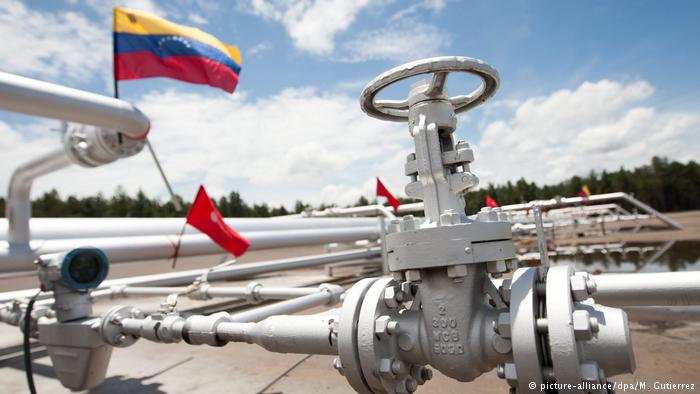
(Contributor, Adaelizabeth Omaira Guerrero Rodríguez, 18.Sep.2023) — The hydrocarbons industry constitutes the main resource of Venezuela, therefore, the study of this area should be the main interest of Venezuelans, in order to be able to make the most accurate decisions on the appropriate legal regime for its exploitation.
State control of the oil business is binding on the State monopoly, since the oil activity is reserved in accordance with articles 12, 302 of the Constitution of the Bolivarian Republic of Venezuela, the primary activities related to the exploration in search of hydrocarbon deposits, the extraction of them in their natural state, their collection, transportation and initial storage[1] as well as the activity of commercialization of natural hydrocarbons, are carried out by the State either directly by the National Executive or through companies of its exclusive property, it may also do so through joint ventures where the State must maintain a participation of more than fifty percent (50%).[2].
However, the activities related to gaseous hydrocarbons are regulated by the Organic Law of Gaseous Hydrocarbons enacted in 1999[3], which allows free private national and foreign initiative, with or without the participation of the State for the exploration and production of natural gas not associated to oil or also known as free gas.
The participation of private capital in oil and associated gas will be allowed under the figure of joint ventures, being allowed under this scheme in the primary and industrial activities understood as those “related to the exploration, exploitation, refining, industrialization, transportation, storage, commercialization, conservation of hydrocarbons, as well as those related to refined products…”[4]
At present, natural gas is a crucial commodity in the era of energy transition because it generates “less greenhouse gases; it emits less carbon dioxide (CO2) and air pollutants” (Casas, K, Córdoba, S., 2022)[5].
Regardless of the liberalization of the activity of non-associated gaseous hydrocarbons by allowing the investment of national or foreign private capital, with or without State participation, where the free gas once extracted from the field becomes the property of the licensee, being compatible with the reserve of public domain of hydrocarbon fields, since this natural or free gas is regulated by special law, excluding the extractive activities of gas associated with oil exploitation.
Venezuelan oil practice reveals that excess associated gas that is produced from drilling wells is not used or returned to the reservoir; on the contrary, it is burned in vents, generating gases that pollute the environment. “The sources of natural gas in Venezuela are mostly associated with liquid hydrocarbon deposits, this associated gas is not used, but is burned or released directly into the atmosphere, this implies pollutants released into the atmosphere and loss of profits with the efficient exploitation of this energy resource”. (Cuevas Heredia, E., 2023, p.1).
The proximity of cities to crude upgrader and refineries affects air quality and therefore there is a permanent risk to the health of neighboring populations, due to the industry’s role in the improvement of extra-heavy crude, which can generate significant socio-environmental impacts due to the high levels of air pollution caused by the emission of toxic pollutant and greenhouse gases.
The modernization of the hydrocarbon business requires the implementation of liberal policies that are aligned with the competitive business world that requires technology, technical know-how, infrastructure and its maintenance. The application of these exclusive constitutional principles of the National Executive, comparable to the exercise of power of absolutist monarchies, has visibly not translated into social or economic well-being in Venezuela.
The Venezuelan reality evidences the unviability of the entrepreneurial State, since the control of the National Executive over hydrocarbons does not represent the expected social benefit that implies the determination to eradicate poverty, in substitution of individual effort and preparation.
Therefore, in the hydrocarbons business, not only should it be assumed the proposal to privatize the public companies, but also to legitimize the privatization of the subsoil, thus counteracting the absolutist political control in Venezuela, in order to confirm that the life and development of the productive processes reside in their freedom.
Author: Adaelizabeth Omaira Guerrero Rodríguez
Venezuelan Attorney graduated from University Santa María, Eastern Nucleus (2010); Specialist in Labor Law (USM), Specialist in Customs and Foreign Trade Management, National School of Administration and Public Finance (2023), Experience in the Hydrocarbons legal sector (Legal Department Petrocedeño, S.A. and Petrojunin, S.A.). Member of the Venezuelan Association of Maritime Law, Venezuelan Association of Arbitration, Venezuelan Society of Commercial Law and Women in Energy Venezuela. Author of several specialized publications. Bilingual (Spanish-English). Academic Coordinator, University Metropolitana, Eastern Office. U.S. Department of State Alumni, International Visitor Leadership (IVLP) and member of the Canadian Institute for International Law Expertise (CIFILE).
Bibliography-
- [1] Organic Hydrocarbons Law. Official Gazette of the Bolivarian Republic of Venezuela. No. 38,493 of August 4, 2006. No. 39,830 of November 28, 2011. Article 9.
- [2] Organic Hydrocarbons Law. Official Gazette of the Bolivarian Republic of Venezuela. No. 38,493 of August 4, 2006. No. 39,830 of November 28, 2011. Articles 9, 22, 57
- [3] Organic Law of Gaseous Hydrocarbons. Official Gazette No. 36,793 Extraordinary dated September 23, 1999.
- [4] Organic Hydrocarbons Law. Official Gazette of the Bolivarian Republic of Venezuela. No. 38,493 of August 4, 2006. No. 39,830 of November 28, 2011, Article 1, 22.
- [5] Katherine Casas y Sergio Córdoba, 2022, “El gas natural y su rol en la transición energética”. Recuperado de: https://crudotransparente.com/2022/11/21/el-gas-natural-y-su-rol-en-la-transicion-energetica/#:~:text=Adem%C3%A1s%20de%20su%20versatilidad%20energ%C3%A9tica,CO2)%20y%20contaminantes%20del%20aire
Other sources.
- Dominguez Guillen, María C, Pérez Fernández, Carlos (2022), ” Accession”. Course on Real Property and Rights. Retrieved from: http://rvlj.com.ve/wp-content/uploads/2022/08/597-663.pdf
- – Dˈorazio, Franco, 2017, “Los papeles perdidos del libertador”. Madrid.
- – Mora Contreras, Jesús El derecho de propiedad de los hidrocarburos en Venezuela origen y tradición legal Revista Venezolana de Economía y Ciencias Sociales, vol. 8, no. 2, May-August, 2002 Universidad Central de Venezuela Caracas, Venezuela p.225 . Retrieved from: https://www.redalyc.org/pdf/177/17780211.pdf
- – Zúñiga Urbina, Francisco, (2005), “Constitution and Public Domain (Public Domain of Mines and Terrestrial Waters). Retrieved from: https://www.scielo.cl/scielo.php?script=sci_arttext&pid=S0718-00122005000200003
- – Girón, Cesar (2007), “Chapter 10 – Who is the owner of the subsoil?”. Retrieved from: https://articulos.ghersi.com/2011/08/capitulo-10-%C2%BFquien-es-el-dueno-del-subsuelo/
- – Franciskovic Ingunzal, Millitza, (2015), “Sistemas De Dominio Originario De Los Yacimientos”.
- – Nuñez, Jorge, (1989), “The French Revolution and the Independence of Latin America”. Retrieved from: https://nuso.org/articulo/la-revolucion-francesa-y-la-independencia-de-america-latina/
- Vergara Blanco, Alejandro, (n.d.), ” Nature legal of the subsoil and powers of the administration to provide for its use”.
____________________
By Adaelizabeth Omaira Guerrero Rodríguez

